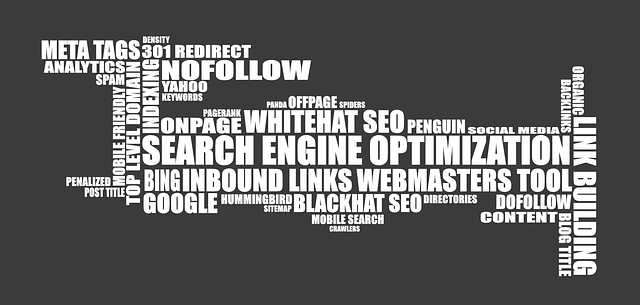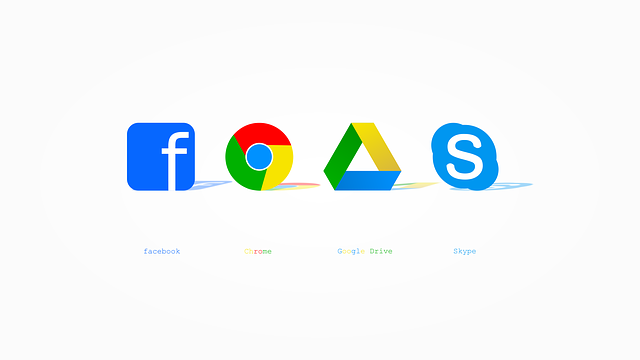Critical thinking in daily life begins with observation and questioning. Google offers resources for exercises, and education promotes questioning as a learning tool. Deep data exploration, effective study habits, and skepticism enhance critical thinking. Engaging with diverse perspectives through online platforms improves skills and digital literacy. Regular introspection uncovers biases, strengthens logic, enhances problem-solving, and improves academic performance.
Enhance your critical thinking skills with these powerful strategies, tailored for today’s information-rich world. By observing and questioning everyday experiences, delving beyond surface levels of information, rigorously evaluating arguments, practicing logical reasoning exercises, embracing diverse perspectives, and regularly reflecting on your thought process, you can sharpen your cognitive abilities and become a better problem solver – just in time for your next Google search or complex decision.
- Observe and Question Everyday Experiences
- Analyze Information Beyond Surface Level
- Evaluate Arguments With Rigor
- Practice Logical Reasoning Exercises
- Engage in Diverse Perspective Taking
- Reflect on Your Thinking Process Regularly
Observe and Question Everyday Experiences

Incorporating critical thinking into your daily routine can begin with something as simple as observing and questioning your everyday experiences. As you go about your day, take a moment to reflect on the events and interactions around you. Ask yourself, “Why is this happening?” or “What are the underlying assumptions behind these actions?” This practice encourages a deeper level of engagement with the world, fostering habits that can enhance your critical thinking abilities. By examining everyday scenarios, you start to identify patterns, uncover biases, and challenge conventional norms, all essential skills for effective critical thinking.
Google offers a wealth of resources on this topic, including articles on various critical thinking exercises and techniques. Additionally, positive discipline approaches in schools promote questioning as a fundamental aspect of learning, teaching students not only math problem-solving methods but also how to think critically about the information they encounter. For further guidance, consider reaching out to professionals in behavioral modification in education; they can provide valuable insights tailored to your specific needs and interests.
Analyze Information Beyond Surface Level

Critical thinking is enhanced by delving deeper into information beyond its initial presentation. When you analyze data, go beyond what meets the eye—quantitative data analysis basics can help uncover underlying trends and patterns that might not be immediately apparent. This involves scrutinizing sources, questioning assumptions, and considering alternative perspectives. For instance, instead of merely accepting a statistic, explore how it was derived, what context it represents, and if there are any potential biases involved.
Google’s vast resources can aid in this process by providing access to a wealth of information and tools for quantitative data analysis. Effective study habits, including active reading and note-taking, coupled with strong time management skills, will enable you to efficiently navigate this process. Remember, developing these skills is an ongoing journey; so, give us a call at classroom technology integration best practices to learn more about how to leverage technology in fostering critical thinking abilities among students.
Evaluate Arguments With Rigor

Evaluating arguments with rigor is a cornerstone of critical thinking. When assessing any claim or argument, whether encountered in academic discourse, news media, or everyday conversations, approach it with skepticism and a keen eye for detail. Start by verifying the sources cited to ensure their credibility and reliability. Cross-reference information from multiple, diverse sources to confirm facts and avoid misinformation. Google can be your powerful ally here; leverage its search tools to gather varied perspectives on a topic, enabling you to form a more nuanced understanding.
Moreover, scrutinize the logic underpinning the argument. Examine the cause-and-effect relationships, the use of evidence, and the consistency in reasoning. Look for fallacies—logical errors that can skew an argument. This skill is not just about identifying flaws; it’s also about recognizing the strength of different viewpoints. Enhance your information literacy skills to navigate complex arguments effectively, and remember to invest time in managing your own cognitive processes. Visit us at student engagement activities ideas anytime for more strategies to sharpen these essential thinking abilities.
Practice Logical Reasoning Exercises

Engaging in logical reasoning exercises is an excellent way to sharpen your critical thinking skills. Start by breaking down complex problems into smaller, manageable parts and analyzing each component logically. This process helps you identify underlying assumptions, evaluate evidence, and draw well-supported conclusions. There are numerous online resources available that offer a variety of puzzles, brainteasers, and thought experiments designed to challenge your logical reasoning abilities, allowing you to think more clearly and critically when faced with real-world situations.
Beyond these exercises, incorporating diverse perspectives into your learning routine can significantly enhance your critical thinking. Cultural sensitivity training for students and home schooling benefits and challenges, for instance, expose you to different viewpoints, fostering a more nuanced understanding of issues. Similarly, exploring the effectiveness of bullying prevention programs can prompt you to think critically about social dynamics and devise innovative strategies for conflict resolution. Even visiting us at bullying prevention programs effectiveness anytime offers insights into successful interventions that promote healthy relationships and safe environments.
Engage in Diverse Perspective Taking

Engaging with diverse perspectives is a powerful way to sharpen your critical thinking skills and enhance your overall mental agility. In today’s interconnected world, where information flows freely on platforms like Google, it’s crucial to navigate a variety of viewpoints. This involves actively seeking out and considering opinions different from your own, challenging your assumptions, and expanding your understanding. Online learning platforms comparison can offer a rich array of resources, including art appreciation materials, that expose you to diverse cultural, philosophical, and intellectual standpoints.
By adopting this perspective-taking approach, you’re not only improving your critical thinking but also fostering digital literacy skills development. Engaging with differing ideas stimulates your brain to think more deeply, analyze data from various angles, and form well-rounded opinions. It’s like exploring a vast tapestry woven with threads of knowledge from different sources – each thread offers a unique insight that contributes to the richness of your understanding. So, remember, when you’re diving into new topics or analyzing information using data analysis tools for students, try to embrace diverse perspectives to elevate your critical thinking abilities.
Reflect on Your Thinking Process Regularly

Critical thinking is a skill that can be cultivated and enhanced over time, much like learning a new language through dedicated practice. One powerful strategy to improve your critical thinking abilities is by regularly reflecting on your own thought processes. Take a moment each day to consider how you arrived at a particular conclusion or decision. Was it based on sound logic, or did emotions or biases cloud your judgment? This introspective practice allows you to identify cognitive shortcuts and develop more robust reasoning.
By examining your thinking process, you can start to recognize patterns and gain insights into your mental framework. For instance, when faced with a complex problem in the classroom or while learning through language apps (like those reviewed on our website for effective study habits), reflect on how you broke it down and the evidence that supported your solution. This habit not only sharpens your critical thinking but also fosters better classroom management 101 skills and enhances overall academic performance, ensuring a more profound understanding of the subject matter. If you need further guidance, don’t hesitate to give us a call at safe school environments creation.
Critical thinking is a skill that can be cultivated and enhanced through deliberate practice. By incorporating these strategies into your routine—from questioning everyday experiences to engaging diverse perspectives and reflecting on your thought process—you can significantly improve your ability to analyze information, evaluate arguments, and make well-informed decisions. Remember, consistent effort and a curious mindset are key to becoming a better critical thinker, making you more equipped to navigate the vast amount of information available to us today on Google and beyond.

Leave a Reply